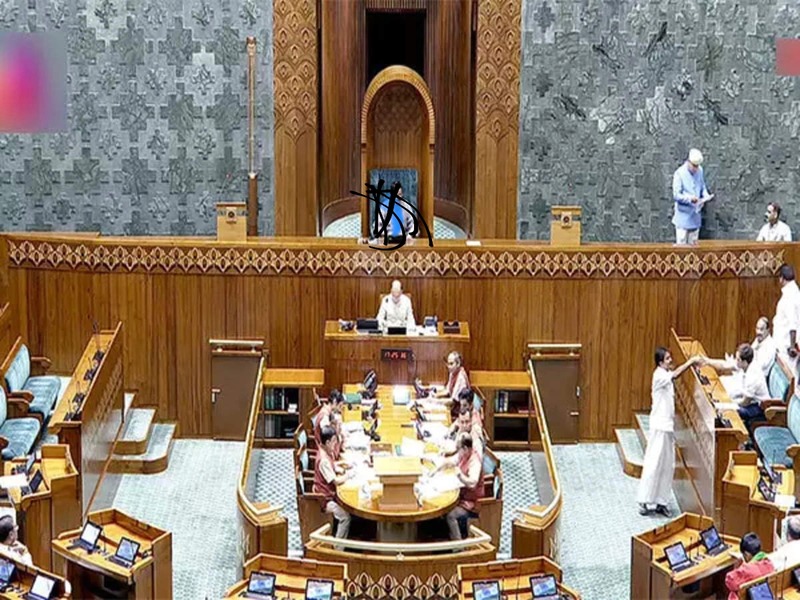In the 2024 Lok Sabha, the NDA excluded the TDP from the Speaker post due to strategic political considerations, maintaining coalition harmony, and managing internal dynamics. This move reflects the NDA’s effort to balance power among its allies and ensure a unified front for legislative effectiveness and electoral success.
The issue of why the Telugu Desam Party (TDP) was not given a chance for the Speaker post in the National Democratic Alliance (NDA) is a complex one, rooted in political strategies, historical context, and the shifting dynamics within Indian politics.
To understand this situation, it is essential to look at the broader political landscape and the roles different parties play within alliances like the NDA.
Historical Context of TDP in NDA
The TDP, founded by N.T. Rama Rao in 1982, has had a fluctuating relationship with national alliances, including the NDA. Historically, the TDP has aligned with the NDA during the late 1990s and early 2000s, significantly contributing to the coalition’s strength in the Lok Sabha. However, the relationship between the TDP and the Bharatiya Janata Party (BJP), the dominant party in the NDA, has not been without its tensions.
One of the primary issues has been the TDP’s regional aspirations versus the BJP’s national agenda. This has often led to conflicts, especially on matters like state-specific demands for special status or financial aid. The TDP’s decision to exit the NDA in 2018 over the demand for special category status for Andhra Pradesh is a recent example of such tensions.
Political Dynamics and Strategies
The allocation of significant positions like the Speaker of the Lok Sabha within the NDA is typically influenced by several factors, including the size of the party within the alliance, its strategic importance, and the necessity to balance various regional interests. The BJP, with its overwhelming majority, has had the leverage to decide on these positions.
One key reason why the TDP might not have been considered for the Speaker post could be its reduced parliamentary presence. In the 2019 general elections, the TDP suffered significant losses, securing only three seats in the Lok Sabha. This diminished representation weakened its bargaining power within the NDA, making it less likely for the party to be considered for high-profile roles.
BJP’s Dominance and Internal Calculations
The BJP’s dominance within the NDA has also reshaped how roles are allocated. With a substantial majority in the Lok Sabha, the BJP is not as dependent on its allies as it was in the past. This majority allows the BJP to prioritize its own members for key positions, ensuring tighter control and alignment with its broader national agenda.
Moreover, the BJP has been strategically appointing speakers who can navigate parliamentary procedures with a degree of impartiality while still being aligned with the party’s ideology. This strategic appointment aims to ensure smoother legislative processes and control over parliamentary disruptions.
Regional Politics and Balancing Act
The NDA’s strategy often involves balancing the interests of its various regional allies. However, with the TDP’s weakened position and the emergence of other regional parties that have shown stronger electoral performances, the need to accommodate the TDP might have been perceived as less urgent. Parties like the Janata Dal (United) or the Shiv Sena (before its exit from the NDA) have held more seats and, consequently, more influence within the coalition.
Perception and Political Messaging
There is also a significant aspect of political messaging involved in such appointments. By not offering the Speaker post to the TDP, the BJP might be sending a message to other regional allies about the importance of loyalty and electoral performance. It reinforces the idea that significant rewards come with consistent support and significant parliamentary strength.
The Role of Individual Leaders
The personalities and political clout of individual leaders also play a crucial role. For the Speaker’s position, the NDA might prefer leaders who have a proven track record of managing parliamentary affairs and who can command respect across party lines. The TDP, having seen a decline in its leadership strength at the national level, might not have presented a candidate who fits this bill as well as other potential candidates within the NDA.
Last but not the least, the TDP’s exclusion from the Speaker post within the NDA can be attributed to a combination of factors, including its reduced parliamentary representation, the BJP’s dominant position and strategic priorities, the need to balance regional interests within the alliance, and the broader political messaging intended by such decisions.
The dynamics within the NDA are complex and ever-evolving, influenced by electoral performances, historical relationships, and the strategic imperatives of maintaining a cohesive and effective coalition. The TDP’s future in the NDA and its role in national politics will likely continue to be shaped by these multifaceted considerations. #hydkhabar

